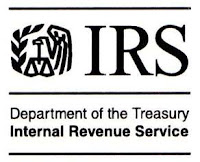Data for last year shows the IRS audited the tax returns of approximately 1 percent (1.6 million) of taxpayers. However, further inspection indicates that the tax returns of an additional 6.5 percent (9.2 million) of taxpayers were subjected to recently defined type of compliance contact. The National Taxpayer Advocate called these compliance contacts "unreal" audits in a recent blog post(1).
No matter what an IRS notification or compliance contact is called, having professional assistance when responding to an IRS notification is advised. The 9.2 million taxpayers who were notified the IRS had recalculated their taxes due, also could have been assessed added penalties and late fees. The notifications happened for the following reasons:
- 4.7 million returns were corrected for math errors
- 3.9 million returns were determined to have underreported income based on third-party reporting, which is done by employers, banks, etc.
- 600,000 substitute returns were filed by the IRS on behalf of taxpayers based solely on income reported by third parties, perhaps resulting in taxpayers not claiming the tax credits and deductions to which they are entitled.
Audits hit all income levels
The primary targets of audits are no longer small business owners and those whose income exceeded $1 million; 64 percent of the 1.5 million taxpayers audited in 2010 earned $50,000 or less, including taxpayers who claimed the Earned Income Tax Credit, but were not eligible. This means an overwhelming majority of taxpayers subjected to audits and other forms of compliance contact are low- and middle-income taxpayers. Following are other factors that may make taxpayers attractive audit candidates:
- Handwritten returns
- Miscalculations and omissions that could be avoided by using tax preparation software and e-filing can cause even the most straightforward returns to be audited
- Unreported income and inconsistencies
- A document-matching program makes it easy for the IRS to check income stated on a tax return against what is reported on forms W-2 (wages), 1099-MISC (self-employment income),1099-INT (interest paid), 1099-B (sale of stock), etc.
- The IRS also uses a program to compare taxpayers' deductions (e.g., mileage and charitable contributions) with others in the same tax bracket to check for inconsistencies
- Schedule C (self-employment form)
- Returns are more likely to be audited if they include claims for expenses not within the IRS's guidelines and include a majority of cash business transactions.
Avoiding errors on tax returns starts with choosing the right tax prep method based on individual needs, and it can help a taxpayer avoid an audit situation. Taxpayers shouldn't panic or ignore IRS notices. Instead, they should seek professional assistance to make sure the changes the IRS made to their return are accurate.

No comments:
Post a Comment